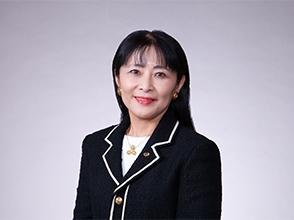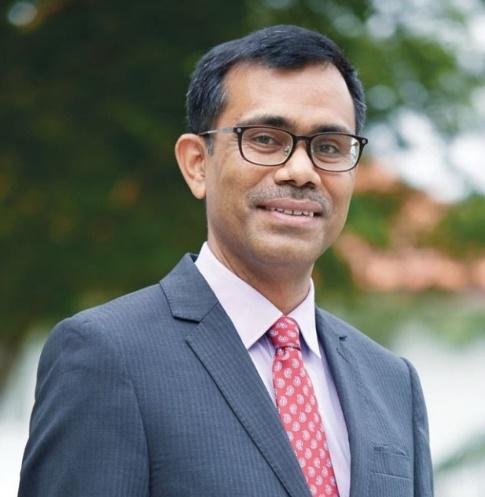Recorded on March 30, 2022.
Timothy A. Gelatt Dialogue on the Rule of Law in East Asia: Climate Change in Asia-Pacific
Panel 4: Corporate Governance and Climate Change in Asia-Pacific
This event was on March 30, 2022.
This event was co-sponsored by the APEC Study Center at Columbia University.
Post-event summary
Governments, investors, and publics across Asia-Pacific are increasingly demanding that corporations do more to address the climate crisis. Jennifer G. Hill at Monash University School of Law in Australia, Yumiko Miwa at Meiji University School of Commerce in Japan, and Umakanth Varottil at National University of Singapore School of Law discussed changing views on the social role of corporations and corporate governance from a comparative perspective. Bruce Aronson, a U.S.-Asia Law Institute affiliated scholar, moderated the discussion.
In Australia, private corporations have taken the lead in climate action due to an absent government, said Professor Hill. Stewardship shareholder codes have pushed for more environmental and social governance (ESG) efforts and climate-related financial disclosures. Institutional investors including pension funds have increasingly supported ESG-related shareholder proposals. Australian companies have started holding non-binding shareholder votes on their greenhouse gas emissions reduction plans, known as “say on climate” votes. Finally, she said, “there is now significant recognition that Australian directors can be liable for breach of directors’ duty, specifically the duty of care, if they fail to take into account the risks of climate change.”
Professor Varottil talked about developments in India, Singapore, and Hong Kong. He described the Indian government as closely involved in promoting corporate governance with respect to climate. This is “because India is one of the countries that is most affected by climate change. There are always stories about extreme weather events in India such as heat waves, floods, and irregular monsoons. … One study shows that heat-exposed work constitutes about 50 percent of India’s GDP and employs nearly 380 million people. So even a slight increase in temperature can affect about 75 percent of the workforce in India. It’s an existential issue.” India’s companies act uniquely requires company directors to act for the protection of the environment, he said. By contrast, Singapore and Hong Kong have no such explicit duty “but nevertheless there is increasing understanding at least among the industry and practitioners that implicit in the directors duties is the fact that climate risk should be considered.”
In Japan, due in part to reforms of the Corporate Governance Code and Stewardship Code last year, companies are required to “disclose their paths to de-carbonization and to develop bold oversight on ESG issues,” Professor Miwa said. In addition, beginning in April 2022, disclosure requirements increase for companies listed on the highest tier of the Tokyo Stock Exchange. Foreign investors, who hold more than 30 percent of shares outstanding in Japan, also are a source of pressure on Japanese companies to go green. Recent shareholder proposals related to climate risk have resulted in a trend of environment-related votes, said Professor Miwa.
The speakers agreed that Asia-Pacific countries have lagged behind the EU and US in pursuing ESG goals, but believe they are catching up. “I think the argument from these countries is that economic development took place more recently and more people need to be lifted out of poverty so maybe to some extent issues like climate risk have not been right at the forefront as in the Western (stock) markets,” said Professor Varottil. But he predicted that the gap will quickly narrow.
By Jessica Chin
About the speakers
Bruce Aronson
Bruce Aronson is a resident affiliated scholar at the U.S.-Asia Law Institute at NYU School of Law and a non-resident research associate at the Japan Research Centre at SOAS, the University of London. He also serves as an outside director at a listed Japanese pharmaceutical company. He has been a tenured professor of law at universities in the United States and Japan and a corporate partner at a major New York law firm. His main area of research is comparative corporate governance with a focus on Japan. He is co-editor of a textbook, Corporate Governance in Asia: A Comparative Approach (with J. Kim).
Jennifer G. Hill
Jennifer G. Hill is the inaugural Bob Baxt AO Professor of Corporate and Commercial Law at Monash University Faculty of Law and director of the Centre for Commercial Law and Regulatory Studies. Professor Hill is an internationally recognized legal scholar in the field of comparative corporate law and governance. Her recent scholarship has focused on corporate culture and other governance issues, shareholder stewardship and activism, directors’ duties and transnational legal orders, common ownership, private ordering by shareholders and directors, and executive compensation. A number of her papers have been reprinted in the Corporate Practice Commentator as among the Ten Best Corporate and Securities articles of the year in North America. Her research has formed the basis for law reform and has been cited in government reports and by courts in Australia and the United States. Professor Hill is a member of the European Corporate Governance Institute and chair of its Research Member Engagement Committee. She served as a member of the Australian Securities and Investments Commission’s External Advisory Panel, and is a fellow of the Australian Academy of Law.
Yumiko Miwa
Yumiko Miwa is a professor at the School of Commerce of Meiji University in Tokyo. Her research focuses on the role of institutional investors in corporate governance. She is also an outside director of the Eisai Co., Ltd., a Japanese pharmaceutical company.
Umakanth Varottil
Umakanth Varottil is an associate professor at the National University of Singapore School of Law. He specializes in corporate law and governance, mergers and acquisitions, and corporate finance, with a specific focus is on India and Singapore. He has co-authored or co-edited five books, published articles in international journals and founded the IndiaCorpLaw Blog. He has also taught on a visiting basis at law schools in Australia, India, Italy, New Zealand, and the United States. Professor Varottil is an editor of the Oxford Business Law Blog, Indian Law Review, Asian Journal of Comparative Law, and Singapore Journal of Legal Studies. He is also a research member of the European Corporate Governance Institute. Before entering academia, Umakanth was a partner at a leading law firm in India. During that time, he was ranked as a leading corporate/mergers and acquisitions lawyer in India by the Chambers Global Guide.



